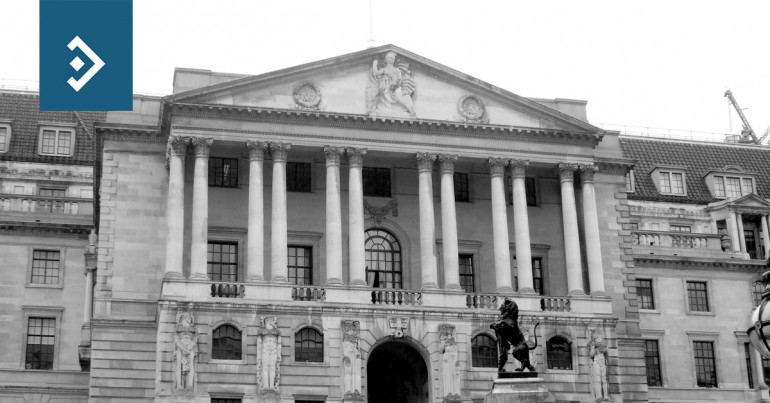
Negative rates a real possibility
Morning mid-market rates – The majors
21st May: Highlights
- Inflation at a four-year low
- Recovery expected to be slower than originally forecast
- Vulnerable economies to recover at different rates
Fall in inflation to drive economic thinking
With Tuesday’s employment report, also for April, adding concerns over the recovery of the economy once the lockdown is over, Chancellor Rishi Sunak predicted that it could take longer than originally expected.
Having produced a significantly more expensive budget than had been expected just a few months ago, Sunak’s throwing open of the Government’s wallet could lead the Government into a difficult choice once goods and services start to flow again. Despite having already ruled out a return to austerity, Sunak’s boss Boris Johnson may be forced to backtrack as it will be a choice between that and higher taxes.
It has been clear for some time that the coming recession will be at a level no one has experienced. Unemployment could rise to 1980’s levels as any form of positive growth could be years away.
The effect on business could be catastrophic. With the UK economy dominated by services, output from that sector could fall by more than 30% this year with hospitality the worst hit. Many small businesses may not be able to reopen and those that do could be hit so hard by continuing restrictions that they will be unable to generate sufficient cash flow to pay staff, utilities and rent.
This grim outlook has so far been masked by the lockdown as the Government pays the wages of close to 10 million workers. That cannot continue beyond the current deadline of October so there will be tough compromises to be made as Autumn/Winter approach.
The pound has so far held its own versus a weakening dollar but has fallen versus the single currency as good news over funding the recovery has seen a rally for the euro.
Against the dollar the pound fell to 1.2221 and closed just two pips higher, while versus the euro, it fell to a low of 1.1132.
Considering your next transfer? Log in to compare live quotes today.
Still more needs to be done
With several states likely to remain in lockdown for some time to come and others where the worst may still be to come, it will be only a handful of States where things are able to get back to normal any time soon.
With no genuine progress being made on creating a mass-producible vaccine, any hopes of getting the economy even close to back on track will take until the fourth quarter at least.
There is a sense of over-confidence across the entire industrialised West with countries that have been relatively unaffected considered to have been more lucky than smart.
The Federal Reserve released the minutes of the latest FOMC meeting last evening and it was clear that having done all it can in the short term that the focus is switching to the financial stability of the country.
One of the most significant reasons for banking conservatism over the past few years has been investor return. Since the 2008/9 financial crisis, banks have, necessarily, tightened their risk criteria considerably.
This has come to the notice of the Fed and Chairman Jerome Powell is looking at prevailing upon banks to limit pay-outs to shareholders. This will, naturally, make bank stocks less appetising to investors. This in turn will limit banks appetite as well as ability to lend which, once the Fed’s guarantee disappears, could slow the pace of the recovery.
The dollar’s correction has accelerated as the index has breached several support levels and yesterday it reached a low of 99.00, closing at 99.17. The close below 99.20 could see the correction deepen with a fall to 98.20 possible.
1.1020 level still looks tough
Traders are entitled to ask what the fuss was all about and if now, why not a month ago?
Nothing has changed constitutionally in Germany and while Angela Merkel is a powerful figure, she still has laws, conventions, and court rulings to abide by.
Just how the fact that Germany (and several other EU members) will be virtually guaranteeing the performance of several other Sovereign States whose past economic performance doesn’t fill bond markets with enthusiasm remains to be seen.
The EU can only borrow to finance member states, while the European Commission is the legal entity that actually is the debtor in any borrowing.
A lot of the recent wrangling has been over the loan or grant discussion. That could continue as the EU’s borrowing can only be used to provide loans to member States but not to finance its own budget. With the idea that the financing will be in the form of grants growing, it is unclear just how the funding will appear in the EU Commission’s balance sheet.
This is the crux of the reason why although the market is pleased to see progress, it is far from being happy to close short positions and consider longs.
Yesterday, the euro reached a high of 1.0999, closing at 1.0975, there are several significant resistance points to be cleared before traders feel comfortable that another disappointment isn’t just around the corner.

About Alan Hill
Alan has been involved in the FX market for more than 25 years and brings a wealth of experience to his content. His knowledge has been gained while trading through some of the most volatile periods of recent history. His commentary relies on an understanding of past events and how they will affect future market performance.”



